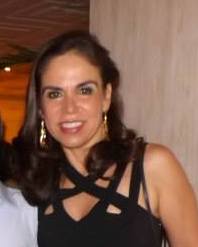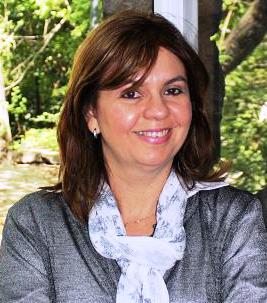From Mentoring to Nurturing — How to turn mentoring into an inspiring experience for teachers
I’m a teacher and a mentor, which means I’m in charge of in-service training at branch level at a large language institute with around seventy branches spread in my hometown and other capitals in Brazil. In practical terms, I welcome new teachers and conduct ongoing training with our teaching staff when I’m not busy teaching and grading students’ work. Fitting all of these duties into our busy teaching schedule is not easy, so mentoring calls for a lot of creativity. My colleagues also teach at other schools and have family and personal commitments, therefore every single hour they can spend on mentoring sessions counts.
The ability to lead and inspire teachers to achieve objectives and exceed expectations is one of the requirements for a mentor, but the question is how can mentors reach teachers in a more dynamic, effective way so that they actively engage in such an intense training program throughout the semester or a whole year? Below are some of my steps for creating a rich, nurturing environment.
Here’s the first step for newly-hired teachers: We create a sense of belonging. I said ‘we’ because at our school, we strive to work as a team, so the whole staff is responsible for welcoming new teachers and helping them out with the paperwork and the routines. It’s part of our culture and I just keep the ball rolling and encourage newcomers to get help from others and help out by sharing their own experiences and expertise. Soon enough, new teachers feel they belong to our community, in which they’re valued as much as the rest of the staff no matter how little their experience may be.
Second step: Build mutual respect and curb criticism. It’s not uncommon for teachers to storm into the staff room completely exhausted due to students’ bad behavior and other issues. Likewise, it’s not uncommon for a teacher or two to proudly say that they would never allow these things to happen in their class. When this happens, it’s time to have a word with these teachers and point out that the teachers’ room is a space for teachers to share their concerns with others and not a space for criticism or boasting. Encourage teachers to listen before they say anything. Some students and classes can give a hard time to even the most experienced teachers.
 Third step: Involve the whole staff in lesson observations. Our job involves lesson observations and a package of pre-lesson and post-lesson observation sessions that sometimes conflict with our busy teaching schedules . After observing a teacher’s lesson and giving them feedback at least once, a good alternative is to ask them to observe more experienced colleagues’ lessons and focus on specific areas such as language presentation or use of mother tongue in class. Encourage them to hold brief meetings with their colleagues before and after observation and then meet with you to give you feedback. This step requires a great deal of team work based on mutual respect and trust.
Third step: Involve the whole staff in lesson observations. Our job involves lesson observations and a package of pre-lesson and post-lesson observation sessions that sometimes conflict with our busy teaching schedules . After observing a teacher’s lesson and giving them feedback at least once, a good alternative is to ask them to observe more experienced colleagues’ lessons and focus on specific areas such as language presentation or use of mother tongue in class. Encourage them to hold brief meetings with their colleagues before and after observation and then meet with you to give you feedback. This step requires a great deal of team work based on mutual respect and trust.
One more step: Communicate your ideas. Firstly, I’m a storyteller. I share both my successful experiences and failures. These stories make teaching more real and put things into a realistic perspective. Each class is a different story, so there’s no infallible way to deal with problems that arise. Two heads think better than one, so we work out solutions collaboratively.
Secondly, time is precious, so we need to make the most of the little time we have. After I’ve observed a number of teachers, I define some key issues we need to tackle — as well as the good things I’ve seen, and I offer workshops and hands-on sessions for the staff. Here are three principles I follow: Sessions must be fun, practical, and relevant. Invite other teachers to present their ideas to their colleagues, too. This can be a first step towards presenting at conferences and seminars.
Finally, I organize quizzes about new materials and institutional issues with ‘wondrous, marvelous’ prizes that can be anything from chocolates to coffee mugs. We all love these events, which take place in the teachers’ room between classes. Teachers work collaboratively in groups and I believe it’s a great way for us to connect with each other and share common objectives.
I believe that mentoring is about inspiring others to pursue further development pathways to empower themselves; however, it is ultimately about encouraging teachers to learn not only from us mentors, but also from our own community of teachers because the teachers we meet along our career paths can help us achieve both personal and professional growth when we least expect it.





